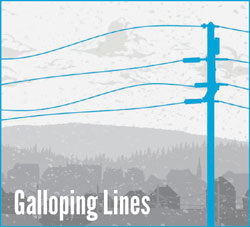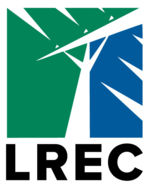This year, many Lake Region Electric Cooperative members experienced service interruptions due to a wide scope of causes. This was troubling to all of us at the cooperative since we view service reliability as an imperative. Please read the accompanying article at the end of this page. No matter how complicated the electric utility business becomes, please know that our highest priority is to provide quality electric service.
I want to address this matter by highlighting four specific points that I feel are essential to Lake Region successfully operating as a member-owned electric cooperative:
- Be forthcoming.
The members of Lake Region Electric Cooperative own this business. When issues arise, we will tell you. We acknowledge and share your concerns. We seek prompt solutions. - Be analytical and strategic.
The specific cause of a power outage may not be readily evident. However, that doesn’t mean that the situation will be ignored. We will continue to scrutinize data and inspect equipment to determine possible causes. Once identified, we take the appropriate remedial actions. - Coordinate remedial action.
Lake Region is a distribution utility within the context of a much larger electric grid system. We work closely on electric service reliability issues in conjunction with wholesale power supply and transmission operators, Great River Energy (GRE) and Otter Tail Power (OTP). These entities transmit electricity to the substations where the connections are made with Lake Region’s distribution system. - Be proactive.
To provide the quality service on which you depend, we must look forward. Lake Region is committed to building on its strengths and making improvements, whether that be to our physical plant or our internal processes.
There are several steps to our action plan. For instance, we are using technology to reveal potential failures in transmission line insulators. GRE and OTP are scanning complete transmission circuits with an Ultra-probe device. This is an advanced digital listening device that picks up the location of small cracks and faults in electric insulators that are not visible to the naked eye. Although labor intensive, this is a great way to be proactive.
GRE has several multi-million-dollar capital improvements in the works to change risk exposures and create diversity in how electricity is transmitted to the area. One such project is the construction of a new GRE Schuster Lake transmission substation. Another project is the total rebuild of the GRE Frazee transmission substation. GRE is also looking into various configuration changes on its transmission system.
Transmission structures located in raptor populated areas will be fitted with raptor guards following the nesting season. This is a large project in the Cormorant and Frazee area that will include about 50 structures. Additionally, GRE crews continue to investigate the use of appropriate animal guards in areas where climbing animals may be prone to interfering with the transmission of electricity.
 Some conductor galloping has been suspected on two transmission circuits, one operated by GRE and the other by OTP. This refers to the high-amplitude, low-frequency oscillation of overhead power lines due to wind and ice. Conductor gallop occurs most commonly during icy conditions accompanied by wind. When energized conductor oscillates in the vertical plane, the conductor can get close to other wires or grounded parts of the transmission tower. This can cause a short circuit fault on the line. To rectify the situation, GRE and OTP are installing gallop mitigation devices such as inter-phase spacers in areas that are prone to galloping.
Some conductor galloping has been suspected on two transmission circuits, one operated by GRE and the other by OTP. This refers to the high-amplitude, low-frequency oscillation of overhead power lines due to wind and ice. Conductor gallop occurs most commonly during icy conditions accompanied by wind. When energized conductor oscillates in the vertical plane, the conductor can get close to other wires or grounded parts of the transmission tower. This can cause a short circuit fault on the line. To rectify the situation, GRE and OTP are installing gallop mitigation devices such as inter-phase spacers in areas that are prone to galloping.
OTP has completed a total rebuild of 2.5 miles of 41.6 kV transmission line along the Hoot Lake Line that serves the Ten Mile Lake, Elizabeth, and Rothsay substations.
Vegetation management is just as important for transmission line rights-of-way as on electric distribution systems. OTP has completed spot vegetation management in the Rush Lake and Henning areas.
 I also want to comment on some recent, and very disturbing, incidents which have resulted in power outages on our distribution lines. These have all been caused by human actions which have torn down power lines and even knocked down power poles. Most concerning is the fact that the occurrences of public caused outages this year is five times more than last year! This is not only an issue because it creates power outages inconveniencing many people, but it’s a huge safety concern, especially as we move into the harvest season. As a farm machinery operator, please take note of your clearances from all electrical equipment, poles, and lines! Your safety depends on it!
I also want to comment on some recent, and very disturbing, incidents which have resulted in power outages on our distribution lines. These have all been caused by human actions which have torn down power lines and even knocked down power poles. Most concerning is the fact that the occurrences of public caused outages this year is five times more than last year! This is not only an issue because it creates power outages inconveniencing many people, but it’s a huge safety concern, especially as we move into the harvest season. As a farm machinery operator, please take note of your clearances from all electrical equipment, poles, and lines! Your safety depends on it!

Summary of Recent Transmission Outages
On July 22nd, a fault occurred somewhere along the Great River Energy (GRE) 115-kV transmission line that extends from Tamarack to Audubon and Frazee. The fault was sensed by an oil circuit breaker (OCB) that automatically tripped the line off. When the transmission system OCB tripped, it also took eight LREC distribution substations out of service. The substations affected were: Dent, Frazee, Perham, Dora, Evergreen, Butler, Burlington, and Cormorant. Seven subs were out from seven to 14 minutes. The Cormorant sub was out for 1 hour 18 minutes because it required manual switching. GRE crews patrolled the transmission line, but no cause for the fault was determined. However, they noted a number of large raptor nests occupied by chicks.
On August 9th, an outage occurred on the same transmission line in the same general location. Crews dispatched to patrol the line found a smoldering nest that had fallen to the ground. The outage lasted less than 5 minutes due to quick response by GRE crews.
Additional Outages
A catastrophic failure of a bushing on the bulk power transformer in the GRE Frazee substation occurred on July 27th at 10:30 p.m. Members served by LREC’s Dent, Frazee, Perham, Butler, Burlington, Dora, and Evergreen substations lost service for an hour while power was rerouted. GRE made preparations for replacement of the transformer at the GRE Frazee substation over the weekend of August 3rd – 5th. GRE continuously monitored the electric load. Contingency plans to activate emergency load control were unnecessary as temperatures and electric load remained low. Upon energizing the Frazee substation, trouble with relay settings tripped out the transformer and caused a three-minute outage in the Burlington substation area. That issue was quickly remedied, and the transformer was fully energized on Sunday, August 5th. Normal electric feed was restored Monday afternoon, August 6th.
 Lake Region Electric Cooperative
Lake Region Electric Cooperative